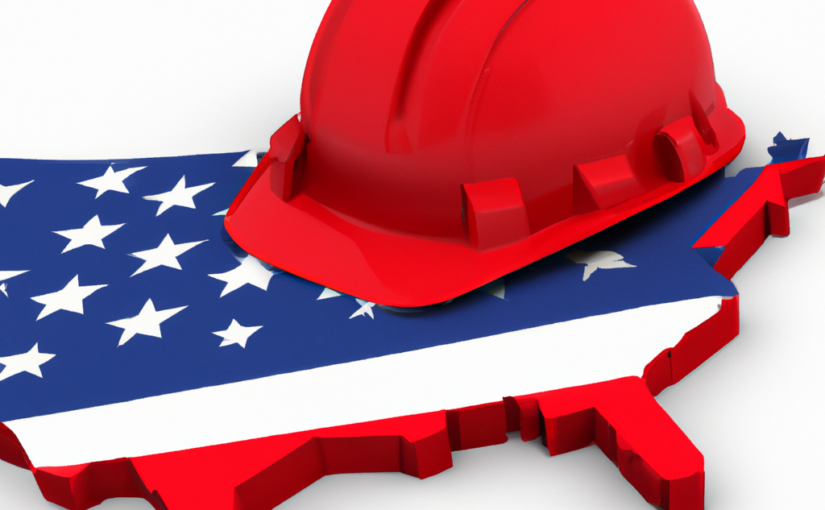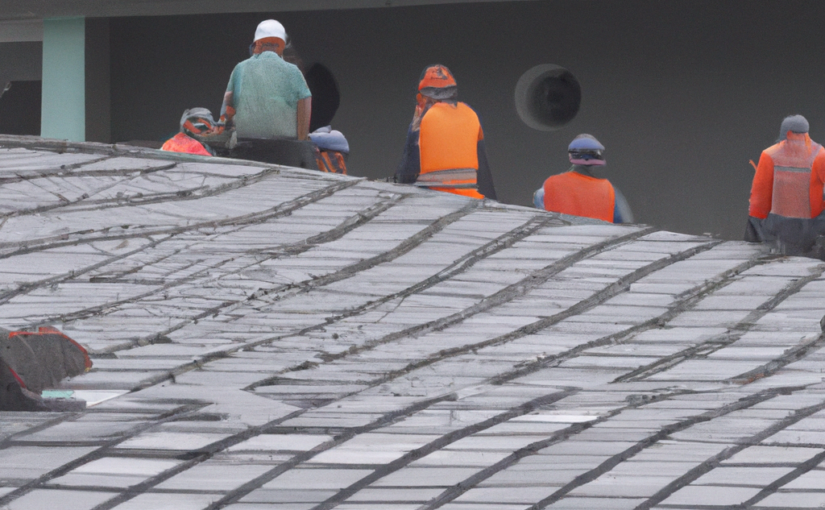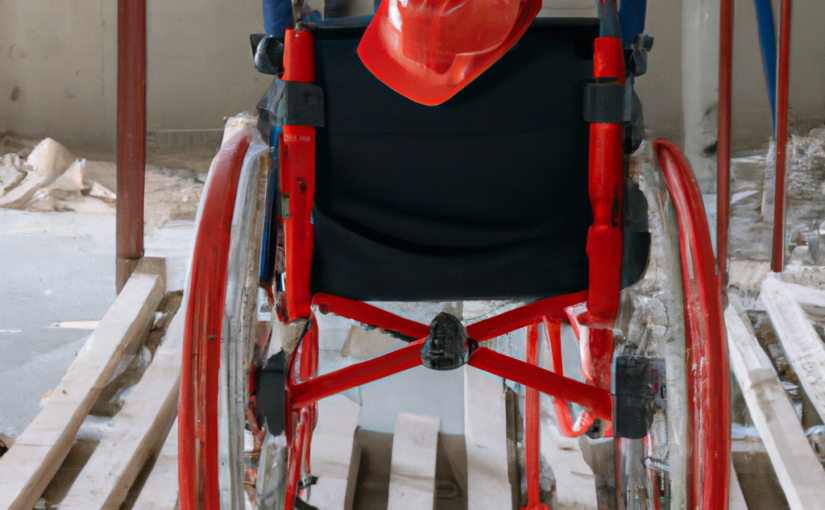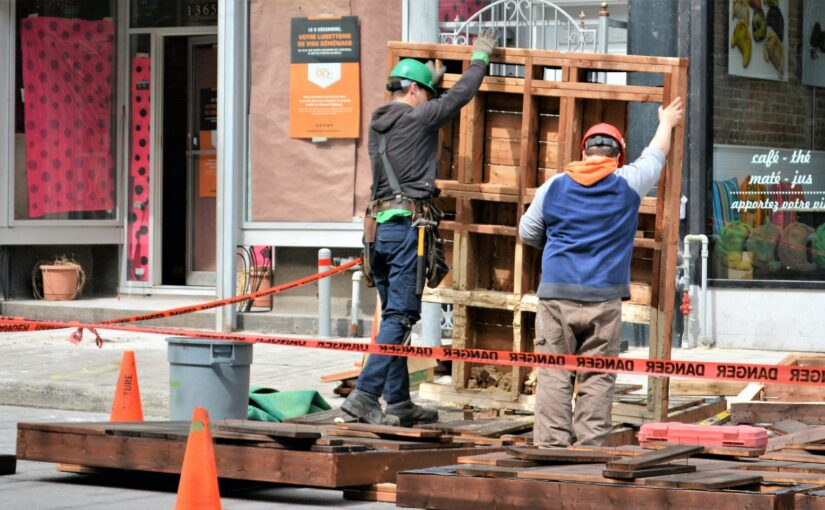Learn about Florida’s construction industry workers’ compensation requirements, workplace safety measures, and FAQs to help employers protect their employees and stay compliant with state regulations.
Workers’ Compensation in Florida’s Construction Industry: Requirements and Coverage Explained
The construction industry is a thriving sector in Florida, employing numerous individuals and contributing significantly to the state’s economy. However, it is also an industry with potential risks, which necessitates the provision of adequate workers’ compensation coverage for all employees involved. In this article, we’ll delve into the requirements and key aspects of workers’ compensation for employers in Florida’s construction sector.
Workers’ Compensation Requirements for Florida’s Construction Industry
Employers with one or more employees in Florida’s construction industry must provide workers’ compensation coverage. This requirement includes corporate officers, Limited Liability Company (LLC) members, and even the owner of the business. For a comprehensive list of trades considered part of the construction industry, refer to 69L‑6.021 Florida Administrative Code.
What Does Workers’ Compensation Cover?
- Medical expenses related to workplace injuries or illnesses
- Lost wages for employees unable to work due to workplace injuries or illnesses
- Vocational rehabilitation for employees who require training or education to return to work after an injury or illness
- Death benefits for the family of an employee who passes away due to a work-related injury or illness
Workers’ Compensation Exemptions
Certain individuals may be exempt from workers’ compensation coverage. Construction industry employers should be aware of these exemptions and ensure they are in compliance with Florida state law.
- Sole proprietors or partners of an unincorporated business may apply for an exemption from workers’ compensation coverage.
- Corporate officers or LLC members with at least 10% ownership in the company may apply for an exemption.
- Some agricultural employers and employees may be exempt from workers’ compensation requirements.
Penalties for Non-Compliance
Failure to provide workers’ compensation coverage for employees in the construction industry can result in severe consequences, including:
- Fines and penalties for non-compliance
- Criminal charges for knowingly failing to provide coverage
- Civil lawsuits by injured employees or their families
- Stop-work orders, which halt business operations until coverage is obtained
Finding the Right Workers’ Compensation Coverage
To ensure compliance with Florida state law and provide protection for employees, construction industry employers should take the following steps:
- Research different insurance providers to find the best fit for your company.
- Obtain quotes from multiple providers to compare coverage options and pricing.
- Review your company’s specific needs and choose a policy that meets your requirements.
- Provide proof of workers’ compensation coverage to the state and maintain accurate records.
- Regularly review your policy and update coverage as needed to account for changes in your business, such as employee count, trade classifications, or company growth.
- Ensure your employees are aware of their workers’ compensation benefits and the procedure for reporting injuries or illnesses.
- Implement safety measures and training programs to reduce the risk of workplace accidents and injuries.
- Stay informed about any changes to workers’ compensation laws or regulations in Florida that may impact your business.
Conclusion
Navigating the requirements of workers’ compensation coverage in Florida’s construction industry can be challenging. By understanding the state’s regulations, providing appropriate coverage, and keeping up-to-date on industry standards, employers can protect both their employees and their businesses from potential risks. By ensuring your business complies with Florida’s workers’ compensation laws, you contribute to creating a safer and more secure working environment for everyone involved.
FAQ
How can construction employers in Florida implement effective workplace safety measures?
Employers can develop and enforce a comprehensive safety policy, conduct regular safety training for employees, perform routine safety inspections, ensure proper use of personal protective equipment (PPE), and establish a clear procedure for reporting and investigating accidents.
Why is workplace safety important in the construction industry?
Workplace safety is important in the construction industry because it helps protect employees from potential hazards, reduces the likelihood of accidents and injuries, lowers workers’ compensation claims, and maintains a strong reputation for the employer within the industry.
What are some examples of personal protective equipment (PPE) commonly used in the construction industry?
Examples of PPE commonly used in the construction industry include hard hats, safety goggles, high-visibility vests, steel-toed boots, gloves, earplugs or earmuffs, and respiratory protection devices.
How can employers stay updated on workers’ compensation requirements and changes in Florida’s construction industry?
Employers can stay updated on workers’ compensation requirements by regularly reviewing the Florida Administrative Code, monitoring the Florida Division of Workers’ Compensation website, subscribing to relevant newsletters, joining industry associations, and consulting with legal professionals specializing in workers’ compensation law.
Glossary:
| Term | Definition |
|---|---|
| 69L‑6.021 Florida Administrative Code | The section of the Florida Administrative Code that defines the trades considered to be part of the construction industry and outlines workers’ compensation requirements. |
| Corporate officers | Individuals who hold executive positions within a corporation, such as the president, vice president, secretary, or treasurer. In Florida’s construction industry, they are included in workers’ compensation coverage requirements. |
| Exemptions | Specific cases where individuals or businesses are not required to provide workers’ compensation coverage. In Florida, exemptions can be applied for and approved by the state. |
| Personal Protective Equipment (PPE) | Safety gear and equipment designed to protect employees from workplace hazards, including hard hats, safety goggles, high-visibility vests, steel-toed boots, gloves, earplugs or earmuffs, and respiratory protection devices. |
| Stop-work orders | Orders issued by the Florida Division of Workers’ Compensation that require a business to cease operations until they obtain adequate workers’ compensation coverage. |
Additional questions:
- Florida construction industry workers’ compensation requirements
- Workplace safety measures in Florida construction
- Exemptions for workers’ compensation in Florida
- Personal protective equipment for construction workers
- Penalties for non-compliance in Florida construction industry
Additional Resources
- Florida Division of Workers’ Compensation: https://www.myfloridacfo.com/division/wc/
- Florida Administrative Code (69L‑6.021) — Workers’ Compensation Coverage Requirements and Penalties for the Construction Industry: https://www.flrules.org/gateway/ruleno.asp?id=69L‑6.021
- Florida Department of Financial Services — Workers’ Compensation: https://www.myfloridacfo.com/Division/WC/Employer/coverage.htm






